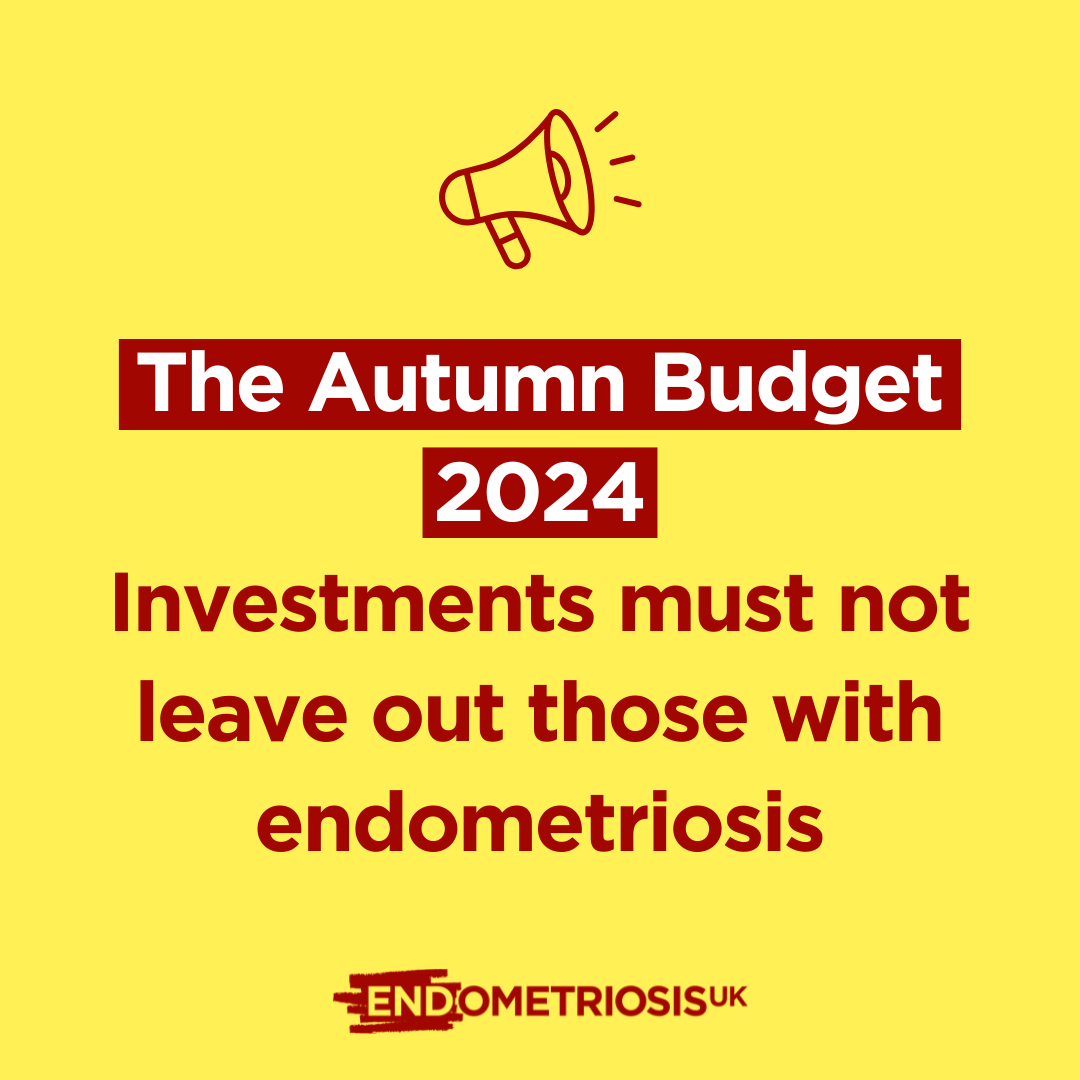This week's Autumn Budget (published Wednesday 30 October), delivered by Chancellor Rachel Reeves, sets out the new Government's plans for the coming months and years.
The Budget contained several measures relevant to healthcare and the NHS, including a commitment to meet 18 week referral times. However, there is currently no detail on how this will be delivered and the Government must acknowledge the clear economic case for investing in menstrual health and the urgent need for reducing gynaecology wait times as part of its new spending plans announced in the Budget.
New measures include a £22.6bn increase in the day-to-day health and care budget in England, starting next year, enabling more than 40,000 elective appointments a week. (Health is a devolved issue, meaning that budgets for services in the other nations of the UK are not set by the Chancellor's Budget.) This includes £1.5bn designed to create capacity for more than 30,000 NHS procedures, 1.25m more diagnostic tests and new beds, as well as creating new surgical hubs. The Budget document says that these measures will "make progress towards the commitment that patients should expect to wait no longer than 18 weeks from referral to consultant-led treatment."
There was also an investment of over £2bn for health research and development, to support the life sciences sector.
Endometriosis UK reaction
While Endometriosis UK welcomes new and much-needed investment into the NHS, it is vital that gynaecology services - i.e. services treating those with endometriosis - benefit from this. As part of any national strategy to reduce waiting lists, those with endometriosis must not be forgotten.
Gynaecology services are under huge pressure with waiting lists exceeding 760,000, many of whom are waiting for a diagnosis or treatment of endometriosis. Data shows that gynaecology waiting lists have grown faster than any other elective speciality since 2020, and are now more than double the size they were prior to the pandemic.
In order to cut gynaecology wait times, the government must ensure as part of its commitments the necessary NHS capacity to appropriately diagnose and provide treatment and pain management for those experiencing symptoms or who have a diagnosis of endometriosis.
Meeting the 18-week commitment for referrals would play a part in reducing the unacceptable 8 years and 10 months average time to get a diagnosis of endometriosis in the UK, and we hope that some of the additional life sciences investment will be allocated to much-needed research into endometriosis.


